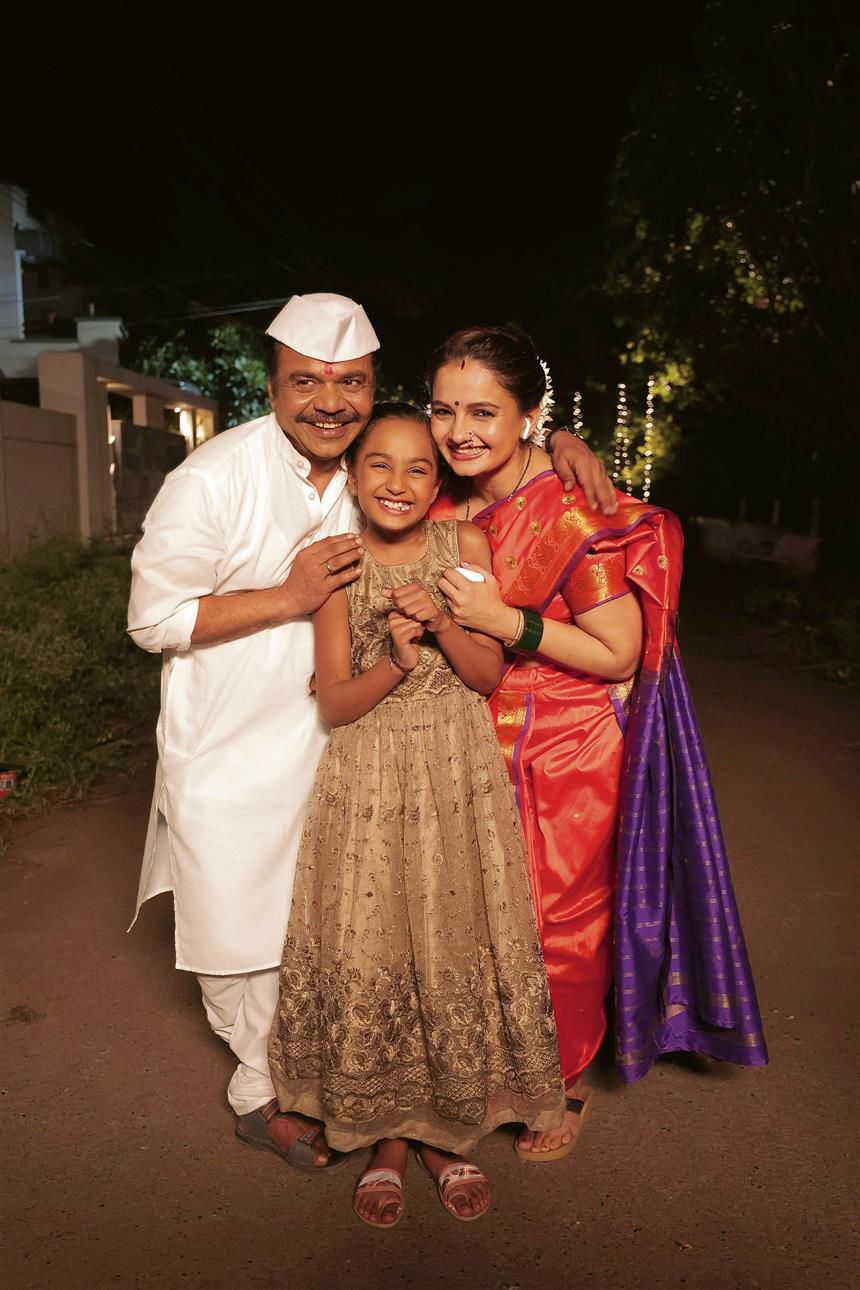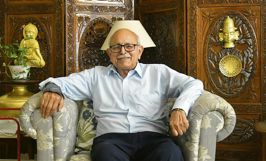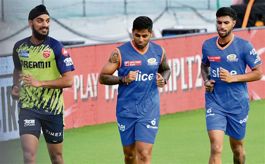‘Kaam Chalu Hai’ is based on the inspiring story of Manoj Patil, who, after losing his daughter to a freak road accident, makes it his mission to fill any kind of pothole.
Film: Zee5: Kaam Chalu Hai
Director: Palaash Muchhal
Cast: Rajpal Naurang Yadav, Giaa Manek and Kurangi Vijayshri Nagraj
Parbina Rashid
This particular scene will remain with me for a long time. A father breaking down in the middle of a road, waving his hand in slow motion as if to erase the traumatic incident that claimed his daughter’s life. The deceptively benign rain-drenched pothole that claimed a life just a day before is in complete contrast to the anguished face that dominates the frame.
A similar anguished look from Nisha Pahuja’s documentary, ‘To Kill a Tiger’, is still fresh in my mind, but nothing could have prepared me for the heart-breaking cries of Manoj Patil (Rajpal Yadav) as he finally accepts that his daughter is gone.
‘Kaam Chalu Hai’ is based on the inspiring true story of Manoj Patil, who after losing his daughter to a freak road accident makes it his mission to fill any kind of pothole to save people from meeting the same fate as his Gudiya. He mourns her death through his mission.
The 82-minute movie starts with a montage of newspaper clippings telling us how many lives those killer potholes claim in our country each year. The film, which will be promoted by IMPPA (Indian Motion Picture Producers’ Association) at the prestigious Cannes Film Festival 2024, deals with this civic issue which has not been talked about through screen outings. As a theme, it is novel, it is relevant and an eye-opener.
Director Palaash Muchhal pans his camera on the lives of the Patils, a middle class family living in Sangli, Maharashtra. Manoj (Rajpal Yadav) is a manager at a local restaurant whose life revolves around his young daughter Gudiya (Kurangi Nagraj). She is bright in academics and also a promising cricketer.
Manoj nurtures this dream of seeing his daughter playing for the country one day.
In the first half, Muchhal’s aim is to paint the picture of a happy family. He does it through scenes that capture the father-daughter bonding, playful banter between Manoj and his wife Radha (Giaa Manek), happy family outings and songs. In his zeal to give us characters that we can feel for, he goes overboard with the happy family bit. The conversations seem artificial and their happiness appears forced.
It’s only in the second half that the film takes a serious turn. As its message takes a definite shape, we get to see a very different side of Rajpal Yadav, the serious avatar. He refuses to accept that his daughter is gone and looks for her in the classroom, the cricket ground, everywhere, just after cremating her. The denial phase soon gives way to the anger phase and we see him running from the police station to government offices to bring the culprit to justice. All this while, holding on to his daughter’s ashes. His expressions, his body language are moving.
So, even when he does something stupid as scaling the wall of the road contractor’s palatial house and enters the bedroom holding a knife, we disregard it as an overdramatisation of grief.
Giaa Manek, too, delivers a moving performance, a woman caught between her own grief and her husband’s crazy behaviour. Parvez Pathan, with his nuanced photography, keeps the sombre tone of the narrative intact, and so do singers Javed Ali and Papon, who enrich it with their songs.
However, for all its positives, ‘Kaam Chalu Hai’ is a work in progress. Though it deals with a serious issue, the mood of the narrative dwells at the surface level. Muchhal pays just a cursory glance at those responsible for the hundreds of lives lost on the roads because of killer potholes. Even the mission of Manoj Patil is more symbolic than anything else. The only time we feel that there is a real person behind that grief-stricken Patil’s persona is towards the end when the reel Patil comes face-to-face with the real Patil, both holding a shovel.
The film ends there abruptly, leaving us to deal with our own feelings and thoughts.
If I feel for Patil for the tragedy he and his wife have had to endure, I also feel for Rajpal Yadav, who had to wait almost a lifetime in Bollywood for a serious, sensitive role to come his way, but still lost out because of a weak script!














